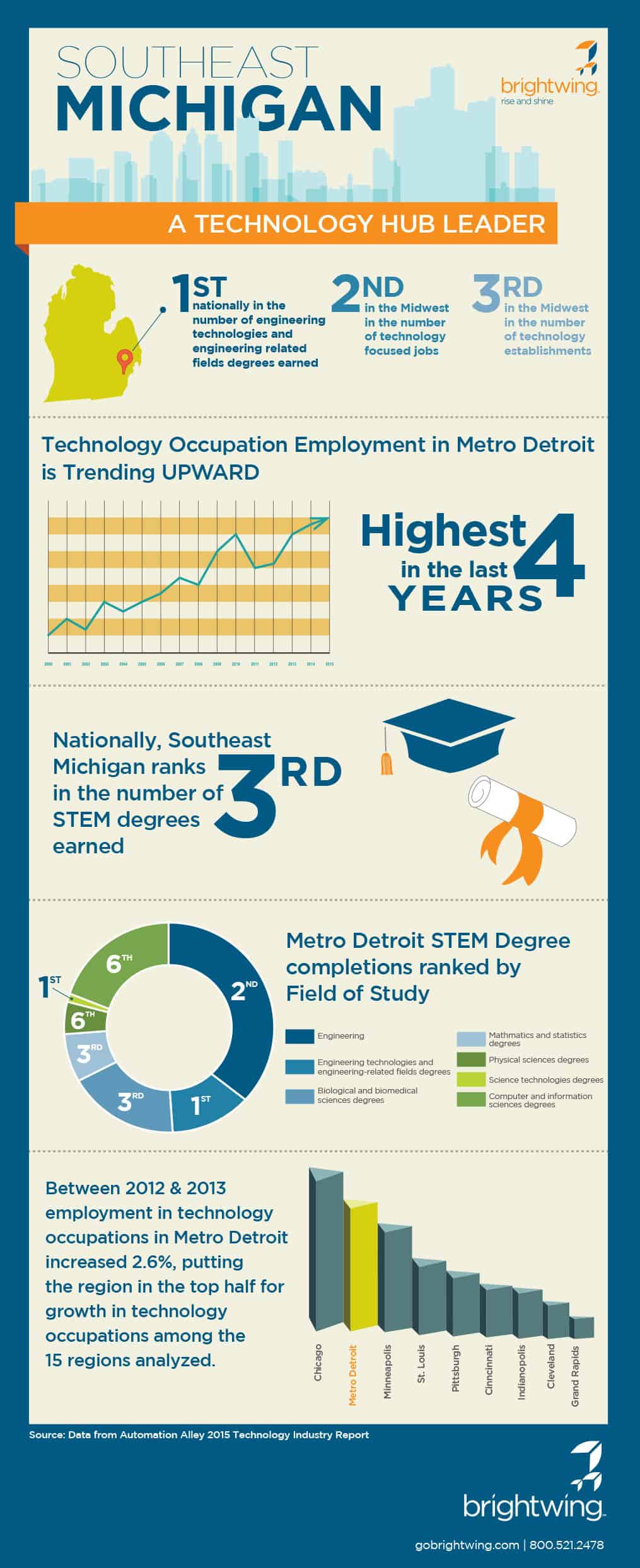Does it seem like recruiters are constantly flooding your LinkedIn and email inboxes?
You’re not alone.
There are about 20,000 staffing and recruiting firms in the United States, which means an enormous number of people are looking for skilled individuals just like you. Spurred by talent shortages in the IT, Engineering, and Finance industries, these recruiters are eager to gain your trust and connect you with one of their clients.
But how do you know which recruiter is really worth your time?
The One Who Listens
Recruiters like to talk, and they’re good at it. They can describe roles with great detail, break down their process to the smallest degree, and even ask strategic questions about your background and preferences. While there’s nothing inherently wrong with being an eloquent speaker, the best recruiters are the ones who actively listen.
If you tell your recruiter that you’re trying to shift your IT career from development to network security, do they continue to throw generic development roles at you? Or did they take heed of your wants and locate a position that blends development and cybersecurity in a way that could serve as a career turning point for you? When a recruiter listens, they understand not just what kind of job you’re looking for but what kind of culture and environment you can thrive in. Additionally, they can uncover any weaknesses you might have and help you prepare for an interview when the time comes.
The One Who Puts Your Career First
A recruiter worth your time is one who doesn’t just focus on your next job but thinks in terms of your entire career. If they send you a job description before they ask you about what roles you want in the next five, ten, or twenty years, take it as a warning sign. 64% of recruiters say their top challenge is dealing with a talent shortage, and this unfortunately leads many to prioritize quantity over quality. In turn, that results in shortsighted goals.
In order to put your career first, a recruiter must understand your career goals as well as the job market and industry trends that will shape the way you can accomplish those goals. However, only 23% of recruiters consider the candidate experience to be a top priority. That cuts the previous number of 20,000 staffing firms down to 4,600 that would be focused on putting your career first. Needless to say, they’re drastically outnumbered.
The One Who Answers Your Calls, Emails, and Texts
Have you ever had a conversation with a recruiter who leaves you feeling hopeful and excited, like your next great role is right around the corner, only to find they disappear, never to be heard from again? There is simply no excuse for a recruiter to ghost you.
If they’ve already filled a role they were previously talking to you about, then they should be looking for a similar position while keeping you in the loop. If you’ve interviewed and their client is taking too long to make a decision, they should inform you so you’re not waiting around in a constant state of confusion. Great communication is the hallmark of a top-tier recruiter. The best in the game will not just respond quickly to your calls, emails, or texts, but will reach out to you regularly so that you’re rarely left having to initiate a conversation.
The One Who’s In It for the Long Haul
Short-term success is important. A recruiter helps you land the perfect role for this stage of your career and all parties are happy. However, that shouldn’t be the end of the relationship. A great recruiter who’s worth your time is one who sticks with you for the long haul, checking in at regular intervals to make sure your first month, quarter, and year are going to plan and that you still love your job.
Best yet, if you’re a consultant and your gig is getting closer to completion, a savvy recruiter will already be working for you behind the scenes, lining up your next opportunity and making sure your previous vision for your career is still accurate. Luckily, 66% of staffing firms believe they are good or excellent at nurturing placed candidates. With a partner like that at your side, you’ll be able to go right into another fantastic role without skipping a beat.
The One with Great Reviews
Finally, what are other candidates saying about a recruiter? When shopping for everyday items, many people rely on reviews and ratings to guide their purchases. Selecting the right recruiter should be no different. Seek out anything that can help you evaluate the reputation of a recruiter, whether it’s talking to friends, examining a recruiter’s LinkedIn page, or best yet, checking out their Great Recruiters profile.
Finding a Recruiter Worth Your Time
Working in an in-demand field has many perks, and while drawing interest from numerous parties is exciting, building up a strong skill set also invites a lot of unproductive noise. As you sift through the generic sales pitches, monotone cold calls, and awkward form emails, the recruiters with the most potential will begin to stand out. If they can reflect the above four traits as you begin to work with them, then rest assured you’ve finally found a recruiter who’s worth your time.
Having trouble finding a recruiter who embodies all these traits? Look no further; they’re at Brightwing. Reach out to us today to get connected.
Related Articles
A Better Framework for Reaching Your Career Goals






 5. Appreciate how the little things can result in a lot of joy.
5. Appreciate how the little things can result in a lot of joy.







 “If you’re looking to advance your engineering career, be prepared! Make sure your resume is up-to-date and proofread, and be ready to answer questions that recruiters may ask you – like ‘What type of job opportunity are you looking for?’ It seems straight-forward, but it could come down to a specific part of a vehicle you want to work on – be specific.”
“If you’re looking to advance your engineering career, be prepared! Make sure your resume is up-to-date and proofread, and be ready to answer questions that recruiters may ask you – like ‘What type of job opportunity are you looking for?’ It seems straight-forward, but it could come down to a specific part of a vehicle you want to work on – be specific.” “Don’t be afraid to show your passion if it relates to your job, as well as your personal life. There is a lot of people that want to be in the industry, and you will need to stand out.”
“Don’t be afraid to show your passion if it relates to your job, as well as your personal life. There is a lot of people that want to be in the industry, and you will need to stand out.” “Let your friends and trusted networks know if you’re looking for a new engineering job. They could come across someone that has potential opportunities. It happens all the time.”
“Let your friends and trusted networks know if you’re looking for a new engineering job. They could come across someone that has potential opportunities. It happens all the time.”




 We’ve said it before and we’ll say it again– Professional Networking is essential for your career. From the grocery store to a professional networking event, you should always be prepared. With the right guide, you can strengthen your networking skills and improve on your weaknesses. Follow these tips to make a greater impression while networking:
We’ve said it before and we’ll say it again– Professional Networking is essential for your career. From the grocery store to a professional networking event, you should always be prepared. With the right guide, you can strengthen your networking skills and improve on your weaknesses. Follow these tips to make a greater impression while networking:
 Networking can be as easy or as complicated as you make it. Sometimes the people you interact with on a day-to-day basis, are the best to network with. Whether it’s at school or at your current job, make an effort to get to know your peers. Great opportunities and friendships may come from it. Especially as a student, networking is very simple and beneficial during classes. This is the perfect place to get to know a variety of future professionals.
Networking can be as easy or as complicated as you make it. Sometimes the people you interact with on a day-to-day basis, are the best to network with. Whether it’s at school or at your current job, make an effort to get to know your peers. Great opportunities and friendships may come from it. Especially as a student, networking is very simple and beneficial during classes. This is the perfect place to get to know a variety of future professionals.


